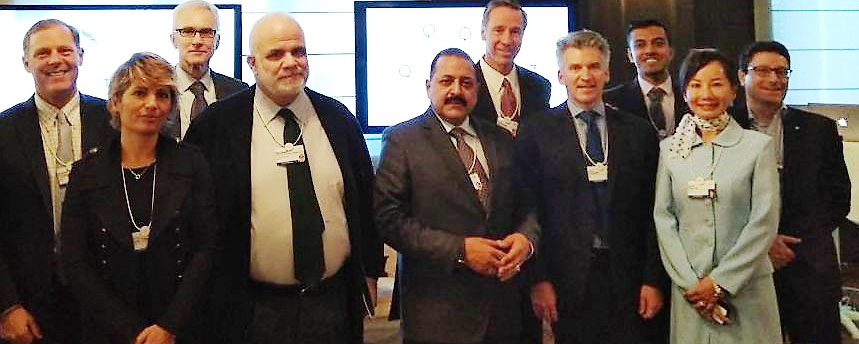World today looking for ‘global’ roadmap, says Dr Jitendra Singh at World Economic Forum
Davos: The Union Minister of State (Independent Charge) of the Ministry of Development of North Eastern Region (DoNER), MoS PMO, Personnel, Public Grievances & Pensions, Atomic Energy and Space, Dr Jitendra Singh said that the world is looking for a new “global” roadmap with uniform parameters, in spite of the diversity and heterogeneity. He was speaking at a panel discussion on “From Fragile Cities to Renewal” at the World Economic Forum in Davos, Switzerland on January 23, 2018. He said that it might not be possible to easily visualise the local perspective in different countries because of their diverse characteristics. For example, the population of Switzerland is only 8 million which is less than the population of Delhi, but nevertheless, with an accountable government and citizen participation, maximum problems arising in a growing world could be addressed. Other panellists included Mr David Cameron former Prime Minister of United Kingdom and Mr Berset , President of Switzerland.
Dr Jitendra Singh further said that more than 239 cities in the world were classified as “fragile” due to pollution, conflict, terrorism, unemployment and lack of electricity, besides other factors. What was needed, he said, was to upgrade the urban space and offer better facilities to the population. When asked to narrate his experience of fragile cities in the context of insurgency in the North Eastern region of India, Dr Jitendra Singh said, in the last three and half years of the Modi Government, a lot of stability in the region has been established. He asserted that insurgency and “fragility” also have a correlation with lack of development and ineffective political leadership. He said, corruption not only leads to loss of moral authority of the State leadership but also causes a huge pilferage of the State exchequer, which would otherwise be gainfully utilized to address the fragility.
Dr Jitendra Singh added that with the growing aspirations among the youth, which is a welcome development, there will always be a certain amount of fragility noticeable even in the most ideal situations because fragility itself is a relative term and what was fragile yesterday may not be fragile today, and what is fragile today may not fragile tomorrow.

